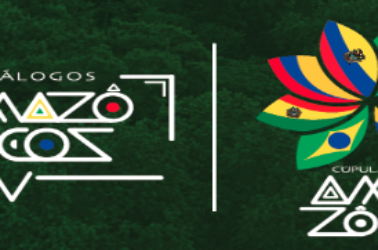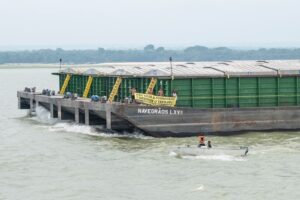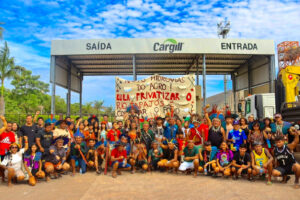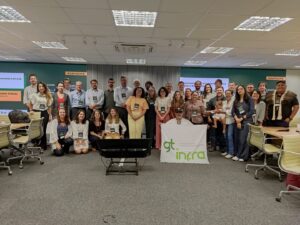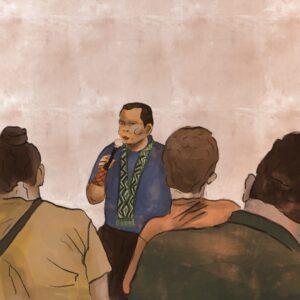On August 8th and 9th, 2023, the city of Belém do Pará was the stage of the Amazon Summit, a meeting that brought together the presidents of eight Amazonian countries with a historic challenge: to chart a new course for public policies in the biome , integrating the protection of forests and rivers, the sustainable use of biodiversity, respect for the territories and rights of indigenous peoples and other traditional communities, while combating poverty both in the countryside and cities, including the promotion of decent work and improved quality of life for all citizens.
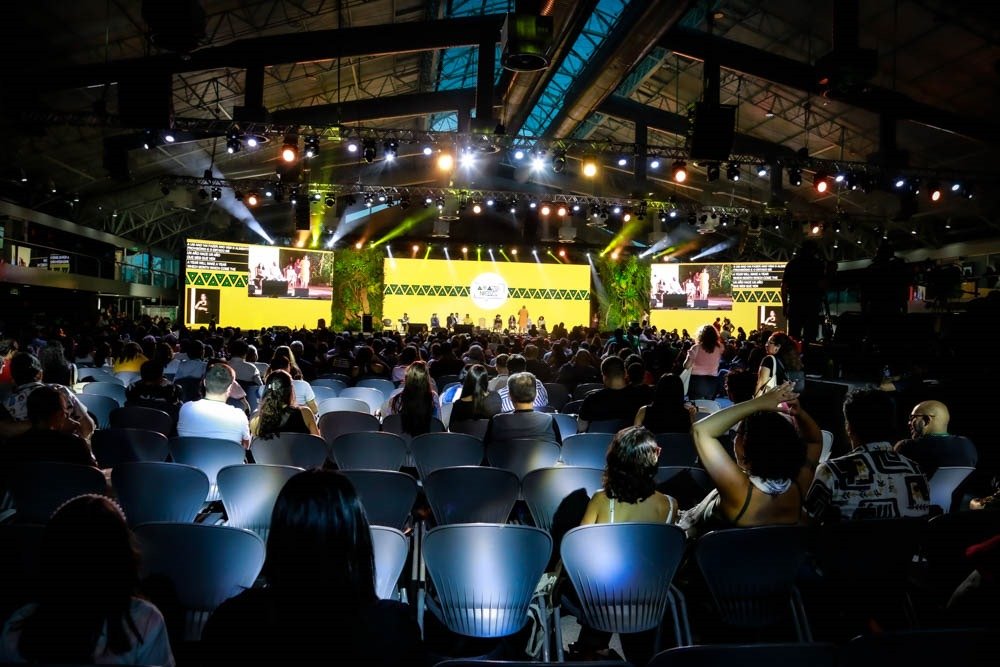
Just before the presidents’ meeting, on August 4th to 6th, the Amazon Diálogues was held, a three-day meeting in Belém that aimed to increase the participation of civil society in debates on new strategies for the region, including as an input for the presidents’ meeting. More than 25,000 people from Brazil and other Amazonian countries participated, including representatives of indigenous peoples and riverside movements, fishermen, extractivists, groups affected by dams and other megaprojects, family farmers and urban workers, as well as civil society organizations, students, scientists and representatives of the private sector. To find out more about Amazon Dialogues, visit the official website .
The agenda of the Amazon Dialogues included a series of activities organized by civil society organizations , along with a series of thematic plenary sessions . The main themes of the plenary sessions were: 1) The participation and protection of territories, activists, civil society and the people of forests and waters in the sustainable development of the Amazon. Eradication of slave labor in the territory; 2) Health, sovereignty and food and nutritional security in the Amazon region: emergency actions and structuring policies; 3) How to think about the Amazon for the future based on science, technology, innovation, academic research and energy transition; 4) Climate change, agroecology and the socio-bioeconomies of the Amazon: sustainable management and new production models for regional development; 5) The indigenous peoples of the Amazon: a new inclusive project for the region and 6) Black Amazons – environmental racism, traditional peoples and communities.
At the end of the Amazon Dialogues, summary reports of each of the thematic plenary sessions were presented at the presidents’ meeting. You can access the six thematic reports here (in Portuguese)
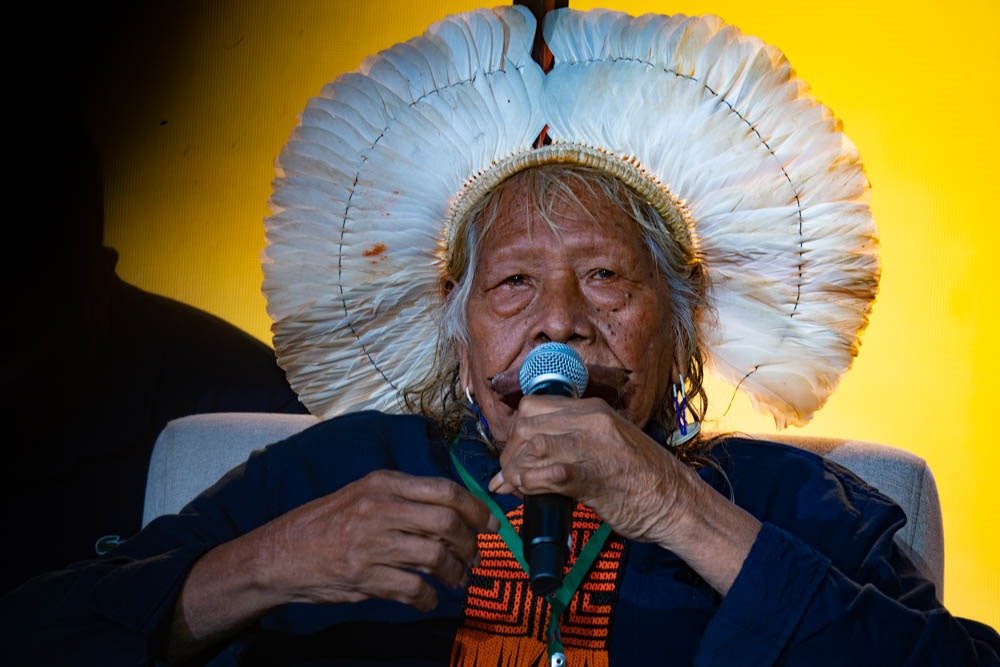
During the three days of the Amazon Dialogues, some key issues that stood out in the debates included: 1) needs to guarantee the territorial rights of indigenous peoples and other traditional communities, which play a fundamental role in protecting the forests and rivers of the Amazon , 2) the need for a new economy based on the sustainable use of biodiversity, respecting the knowledge and rights of local communities and 3) the intensification of initiatives to halt predatory activities, typically linked to organized crime, such as land-grabbing and illegal gold mining within indigenous territórios.
Several participants drew attention to the threats posed by megaprojects, such as hydroelectric dams, highways and railways, soybean monocultures and industrial mining. One of the most debated topics at the Amazon Dialogues was oil exploitation in the Amazon.
On August 7th, the Assembly of the Peoples of the Earth for the Amazon was heldat Aldeia Cabana in Belém, organized by the Panamazonian Social Forum – FOSPA, the Panamazonian Ecclesial Network – REPAM and the World Alliance for the Amazon – AMA. The assembly resulted in a declaration that presents a series of urgent demands, including that governments proclaim a state of climate emergency in the Amazon. The declaration was launched at the people’s assembly and then delivered to several ministers of the Brazilian Government. Read more about the assembly and the peoples’ declaration here (in Spanish).
Also on the eve of the Summit, the Letter from the Indigenous Peoples of the Amazon Basin to the presidents was released , signed by the Coordination of Indigenous Peoples of the Amazon Basin (COICA) and several national and regional indigenous organizations. Read the letter here (in Portuguese).
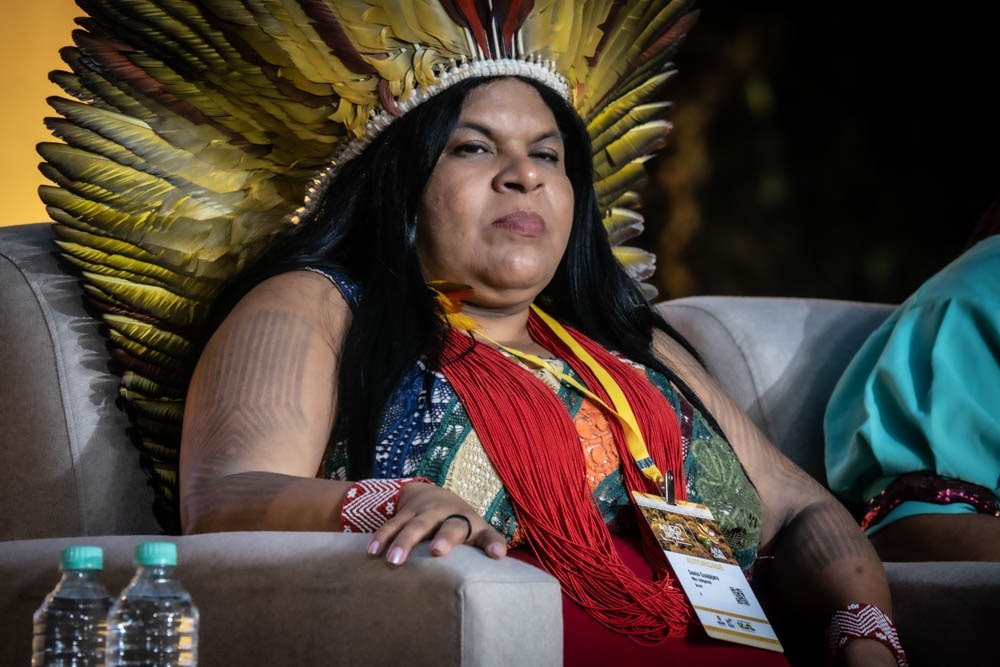
On the morning of the first day of the summit, a March of the Peoples of the Earth for the Amazon took place through the streets of Belém, where social movements in the Amazon drew attention to their criticisms and demands, such as the demarcation of indigenous lands and the end of hydroelectric dams and oil exploration in the Amazon.
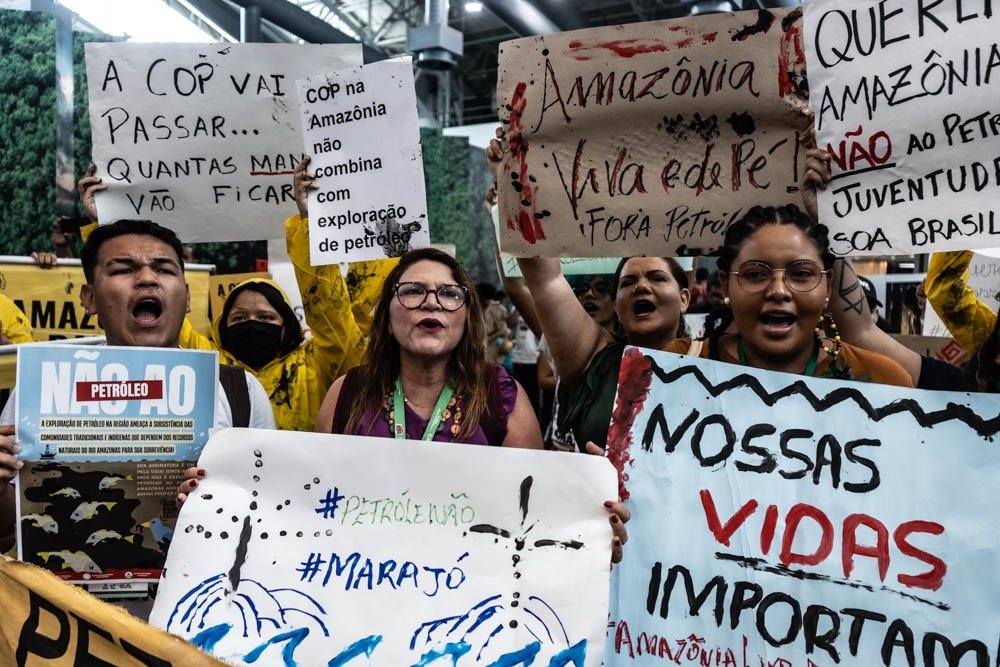
On the first day of the presidents’ summit (08/08), a small delegation of civil society representatives from Amazonian countries presented the summary reports of the Amazon Dialogues. You can watch highlights from presentations by civil society representatives at the presidents’ meeting here (in Portuguese).
At the closing of the summit, the presidents of the Amazon countries, signed the Declaration of Belém, a document with 113 separate items. The declaration includes important advances, such as the recognition of the fundamental role of indigenous peoples in protecting forests, and proposals to strengthen cooperation between Amazon countries in the areas of science and technology and combating environmental crimes. At the same time, there was criticism about the lack of more ambitious goals, with commitments to concrete actions. There was no agreement on controversial points, such as zero deforestation and the suspension of new oil exploration projects. Read the Declaration of Belém in full here :
Looking ahead, a fundamental issue will be monitoring the implementation of the commitments made in the Declaration of Belém, as well as building agreements on critical points – such as oil exploration and zero deforestation – where there has not yet been consensus. All of this on the road to COP 30 of the United Nations Convention on Climate Change, to be held in the city of Belém in November 2025.
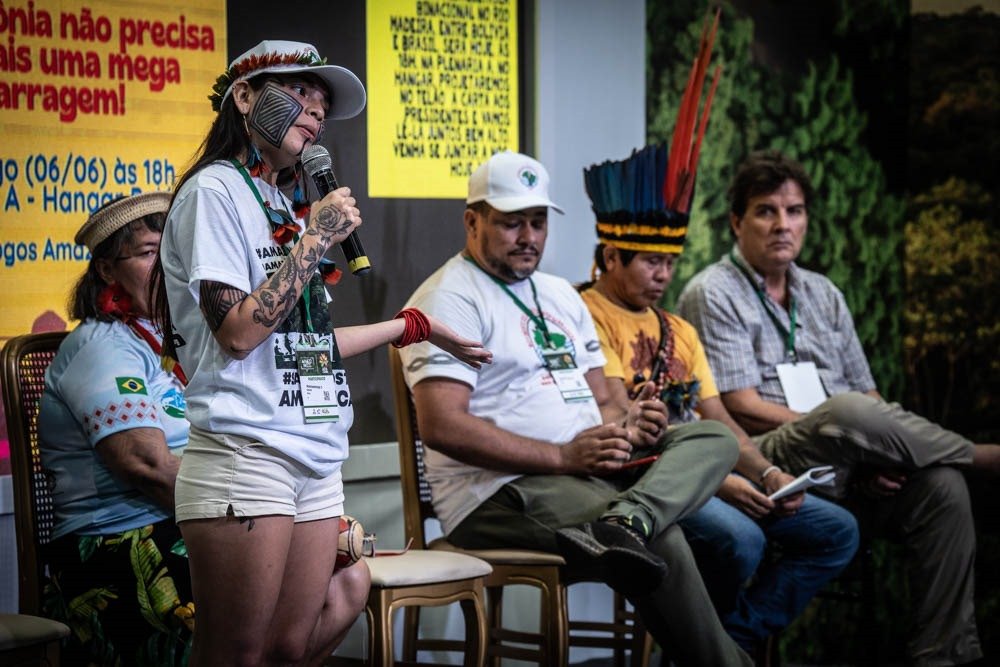
As a contribution to registering key moments and peoples’ voices at the historic Amazon Summit, a short video was produced by filmmaker Todd Southgate with support from the CASA Socio-Environmental Fund, and collaboration with various Brazilian and Panamazonian civil society network. You can watch the video here:
Before the Summit
In the months leading up to the Amazon Summit, a series of civil society networks and groups from Brazil and neighboring countries mobilized to make the presidents’ meeting as successful as possible, in terms of practical results. This mobilization included, among other initiatives, the presentation to Amazonian governments of a series of texts on essential themes, produced by the Pan-Amazonian Social Forum (FOSPA), Amazon Ecclesiastical Network (REPAM), World Assembly for the Amazon (AMA) ,and other partner organizations. You can read the thematic texts here.
One of these texts, on “Infrastructure for Development with Socio-Environmental Sustainability” was initially prepared by the GT Infrastructure and Socio-Environmental Justice, together with partner networks in Brazil: Brazilian Forum of NGOs and Social Movements for Development and Environment – FBOMS, Grupo de Amazon Work – GTA, Climate Observatory – OC, Climate Change and Socio-Environmental Justice Forum (FMCJS) and Pan Amazon Ecclesiastical Network – REPAM. Read the full text on infrastructure here (in Spanish) .
In June 2023, more than 140 organizations dedicated to protecting the Amazon sent a letter to the Brazilian authorities and other Amazon countries (Peru, Bolivia, Ecuador, Colombia and Venezuela) asking for the effective participation of indigenous peoples, traditional and Afro-descendant communities and civil society at the Amazon Summit. Read the letter in Portuguese and Spanish .
On the occasion of the Pan-Amazon Social Pre-Forum held in Rurrenabaque, Bolivia, in July 2023, an an international declaration entitled “The Cry of the Amazon” was launched,withproposals presented to the heads of state of Bolivia, Brazil, Colombia, Ecuador, Guyana, Peru, Suriname and Venezuela. The proposals call for the adoption of urgent decisions for the practical implementation of actions that aim, above all, to avoid the ‘point of no return’ for the Amazon, especially in terms of halting deforestation. See the proposals here (in Portuguese)
Further reading
Declaration of the Peoples of the Earth for the Amazon at the closing of the Presidents’ Summit (10/08/2023) (in Portuguese)
Apib considers the Belém Charter frustrating and demands concrete goals for the demarcation of indigenous lands (APIB, 08/09/2023) https://apiboficial.org/2023/08/10/apib-considers-the-letter-from-belem-frustrating-and-calls-for-concrete-goals-for-the-demarcation-of-indigenous-lands/?lang=en
Amazon Summit Declaration fails the forest and the planet (Climate Observatory (08/08/2023) (in Portuguese)
https://www.oc.eco.br/declaracao-de-cupula-da-amazonia-falha-com-a-floresta-eo-planeta/
Amazon Summit: between criticisms of popular participation and the political balance for the Amazon (Terra de Direito, 11/08/2023) (in Portuguese)
Amazon Summit nations agree on saving rainforest — but not on conservation goals (Mongabay, 11/08/2023)
Useful websites for more information about the Amazon Summit
- Official website of the Federal Government: www.gov.br/secretariageral/pt-br/assuntos/dialogosamazonicos
- Website of the World Assembly for the Amazon – AMA: asambleamundialamazonia.org/
- GT Infrastructure website: gt-infra.org.br
- Climate Observatory website: oc.eco.br
- ClimaInfo website: climainfo.org.br
Instituto Socioambiental – ISA website: socioambiental.org/

